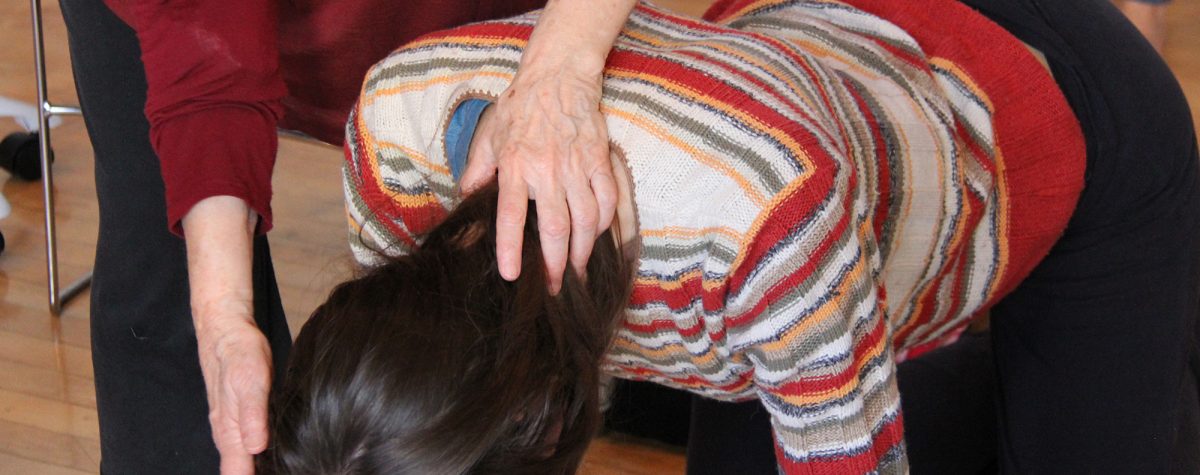School Body-Mind Centering® Yoga Immersion Series

NOW OFFERED ONLINE THROUGH EMBODIYOGA®!
Body-Mind Centering® (BMC®) principles form the basis of a dynamic approach to the practice and teaching of yoga. The Immersion Series is rooted in embodiment and provides a unique and fulfilling perspective on yoga. Whether you have just a basic understanding of yoga or have many years of experience, whether you are a student or a teacher, the modules in this Series will enrich your own yoga practice and give you a new foundation for teaching others.
Through the exploration of how the body systems and developmental movement patterns support and initiate movement, you will learn ways to:
- Perceive the essence of each posture from a multi-body-system understanding.
- Enliven awareness of the evolutionary patterns from which the asanas arise.
- Experience greater depth, ease and flow of movement in forming traditional yoga asanas.
- Improvise new postures based on underlying principles of the different body systems and developmental movement.
- Change mind states as well as body states in transitioning between postures.
- Discover the body-mind relationship inherent in the movement forms.
- Develop a yoga practice based on personal needs and abilities.
- Analyze and facilitate the movement of others using this subtle and dynamic perspective.
All modules are offered online and recordings will be available to participants for continued study and review. Modules can be taken individually without commitment to the entire Series. Some common questions about Immersion Series are answered on our FAQ (Frequently Asked Questions) page.
This Series offers an in-depth opportunity to explore relationships between fundamental principles of Body-Mind Centering® and those of yoga. The requirement for entry into these modules is a personal movement practice and a basic familiarity with yoga asana. No prior experience with BMC® is necessary.
Two key aspects of the Body-Mind Centering® approach will be covered: Embodied Anatomy and Embodied Developmental Movement.
Embodied Anatomy explores asanas through the direct experience of your own body systems, tissues and cells. The learning process takes place not just in the mind, but in the body itself and the experience is integrated at the cellular level. Consciously initiating asanas in this embodied way allows you to freely execute each posture as an expression of your present internal state of being. Your yoga experience is then shaped by the fullness of your cellular involvement rather than dictated by your ability to complete an external form. Static positions transform into dynamic patterns of movement and you, as well as your practice, become enlivened.
Embodied Developmental Movement. Volitional movement is built on a foundation of automatic movement responses that begin developing in the womb and continue appearing up through approximately 12 months of age. The emergence and integration of these responses have an enormous effect on our movement, on how we relate to ourselves, others and the world, and on how we organize and process information. Embodied Developmental Movement principles explore how to consciously access and utilize these automatic movement responses and gain a personal experience of the unconscious movement patterns that form and inform the developmental base of yoga asanas.
Photo © Bonnie Bainbridge Cohen